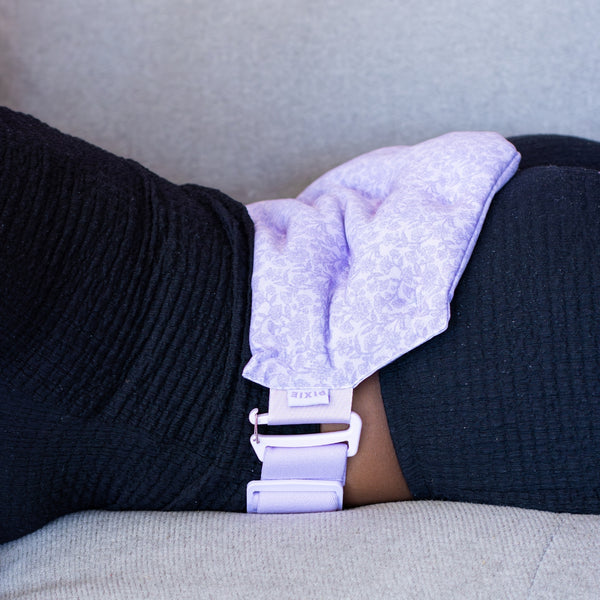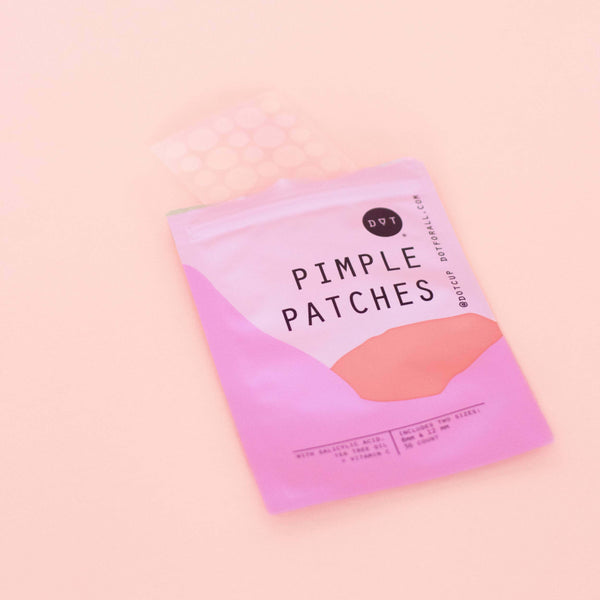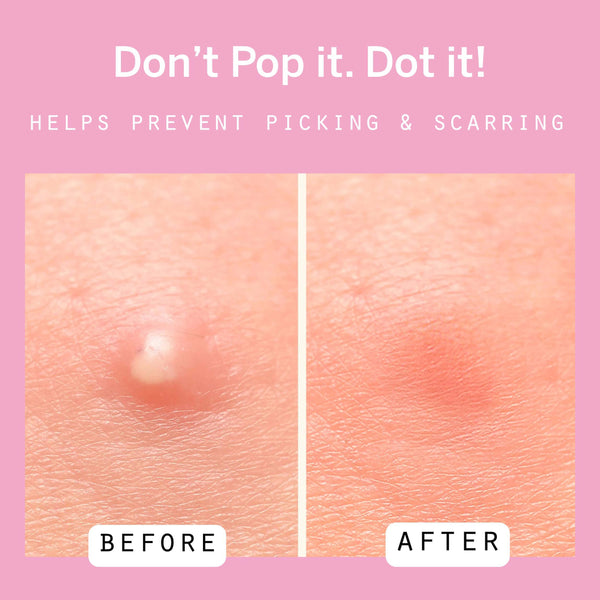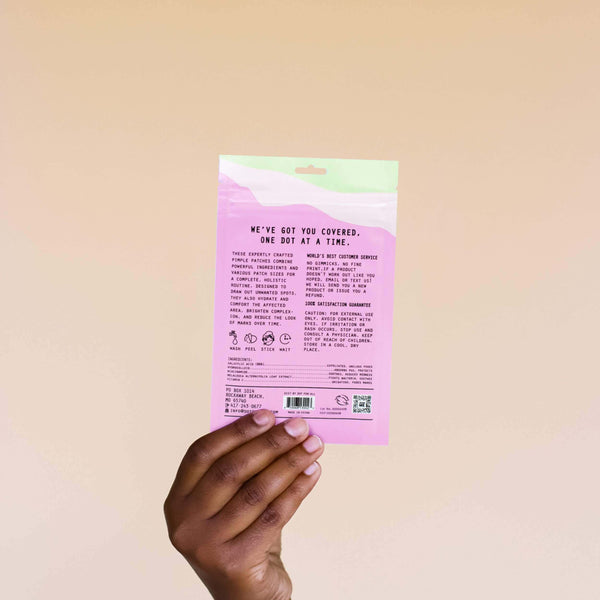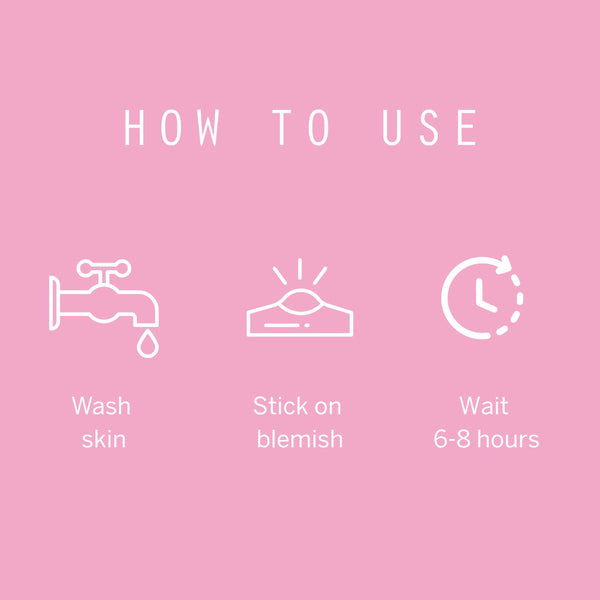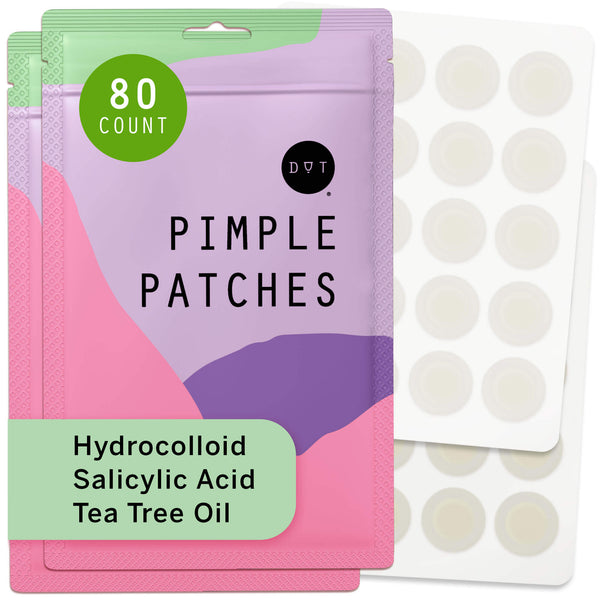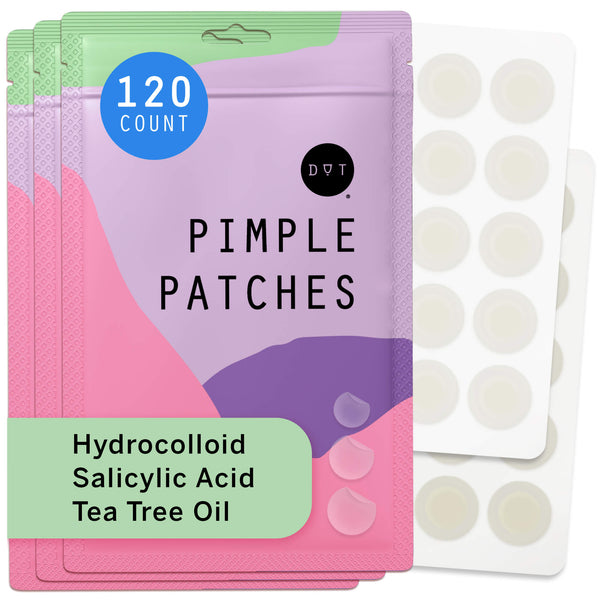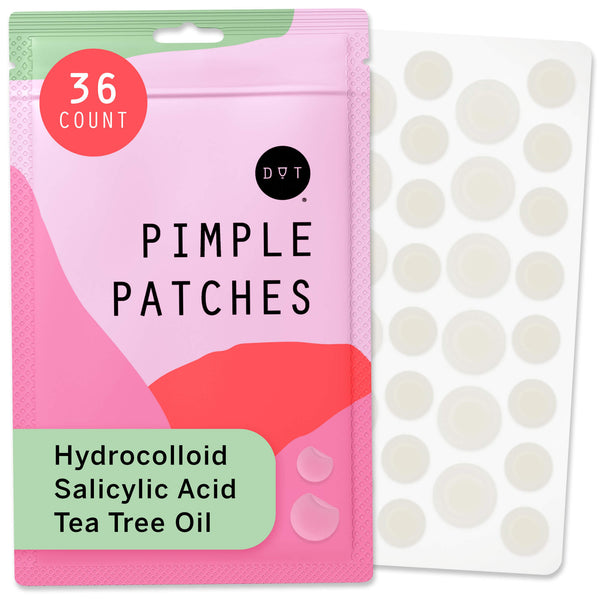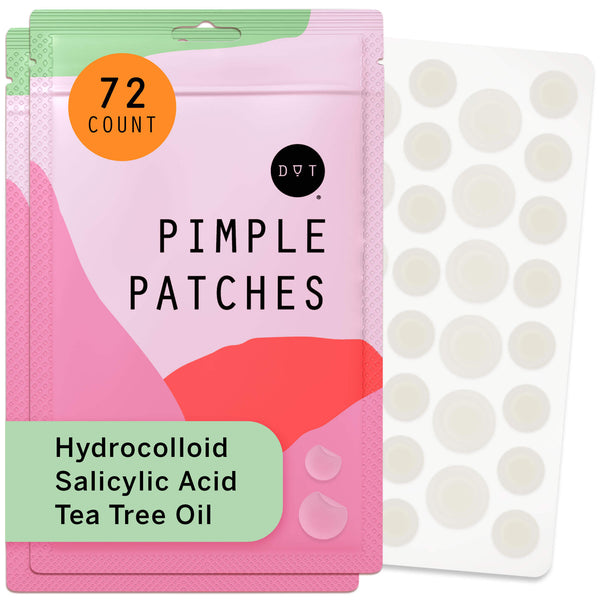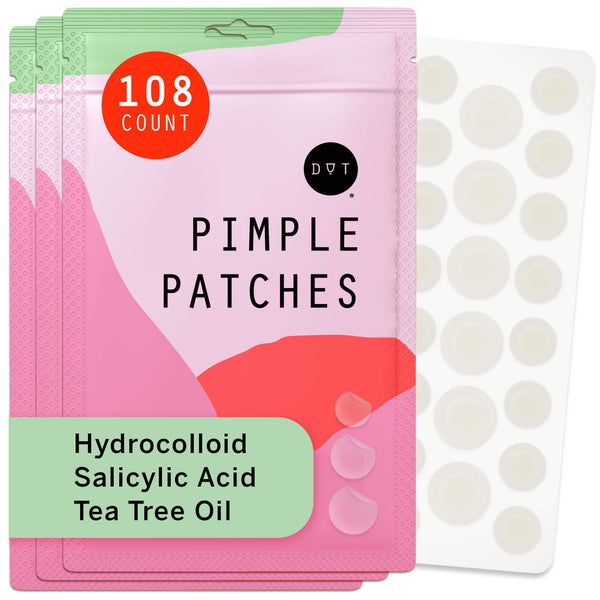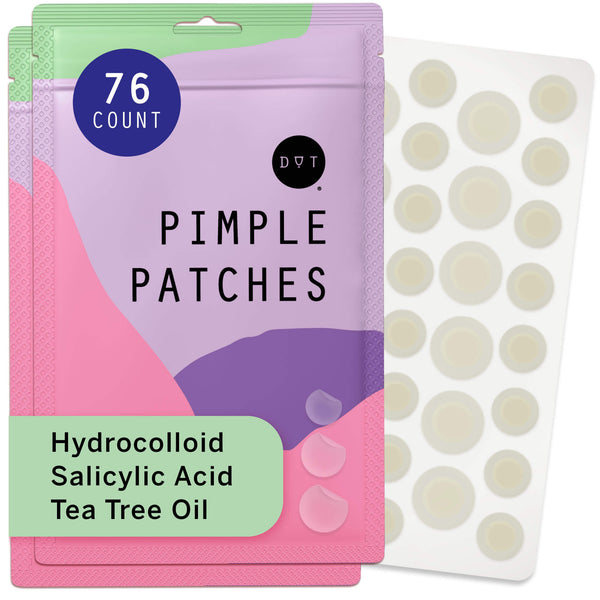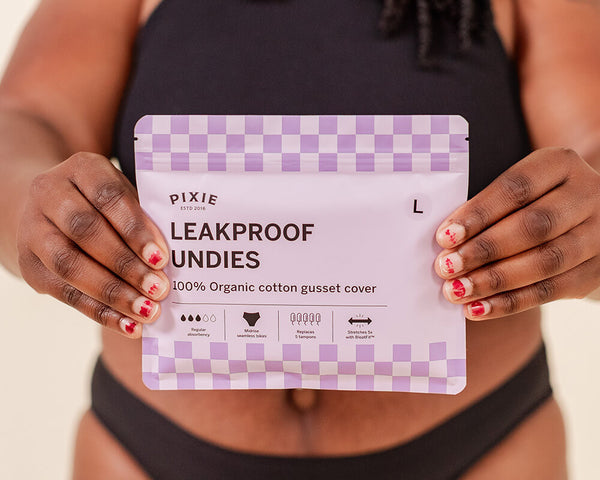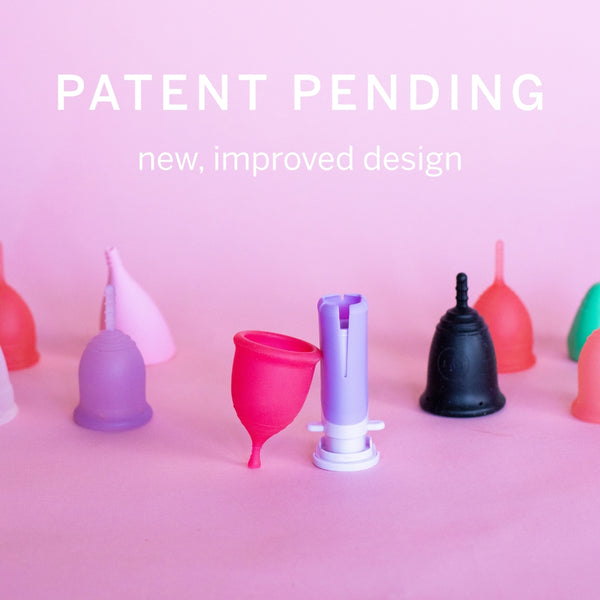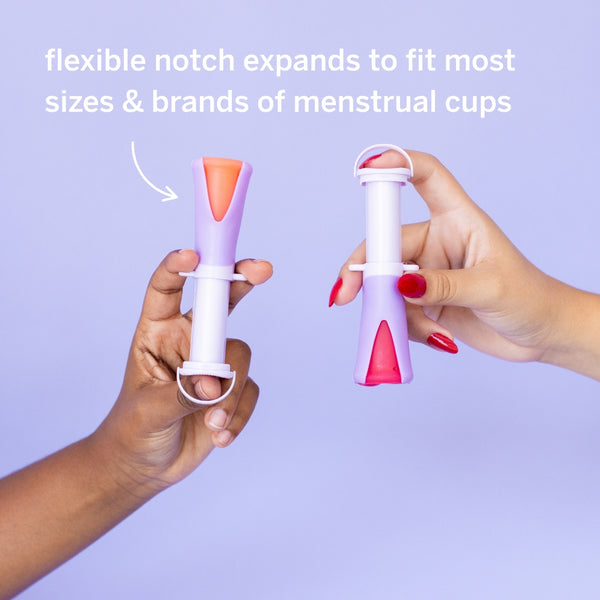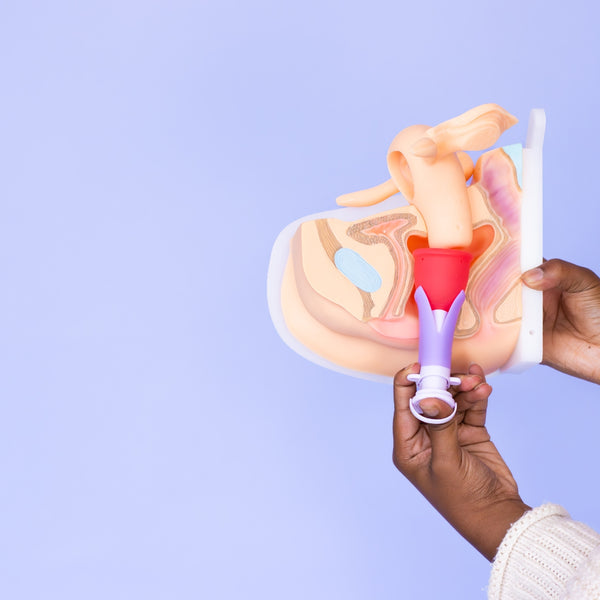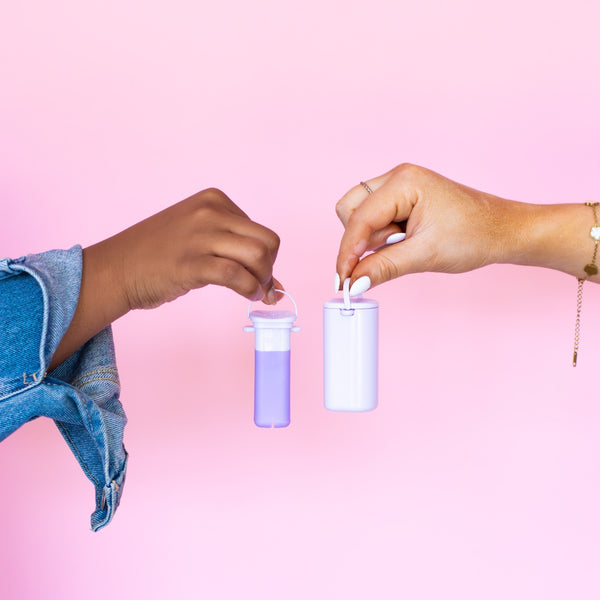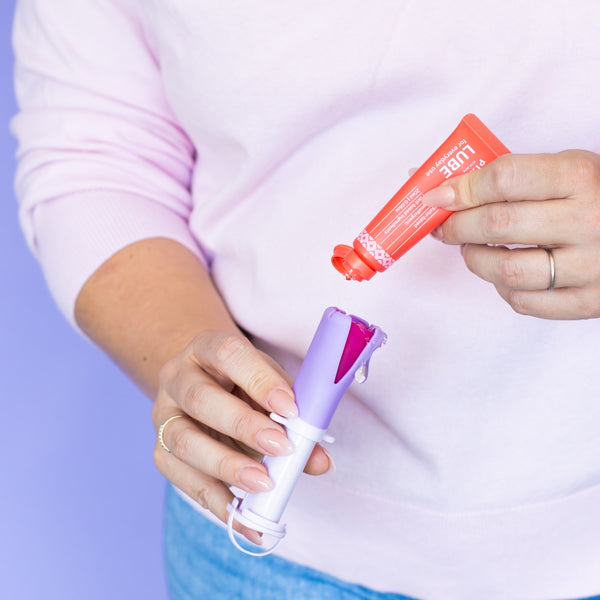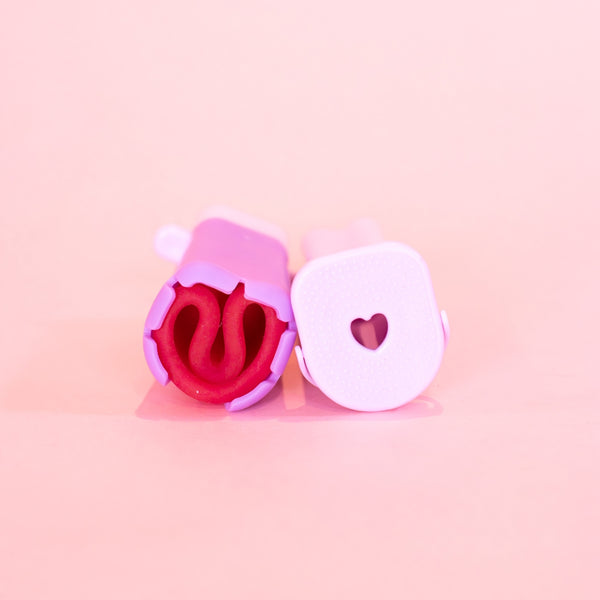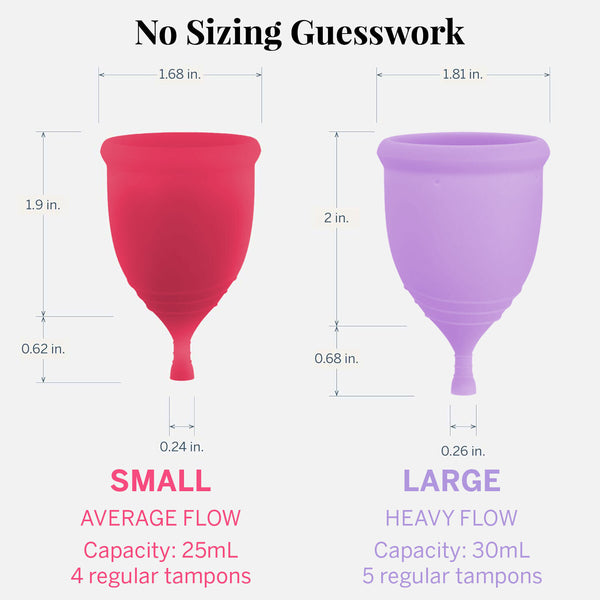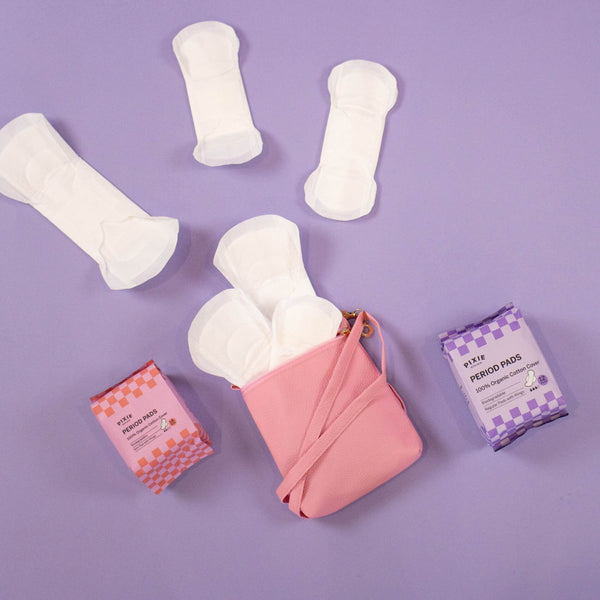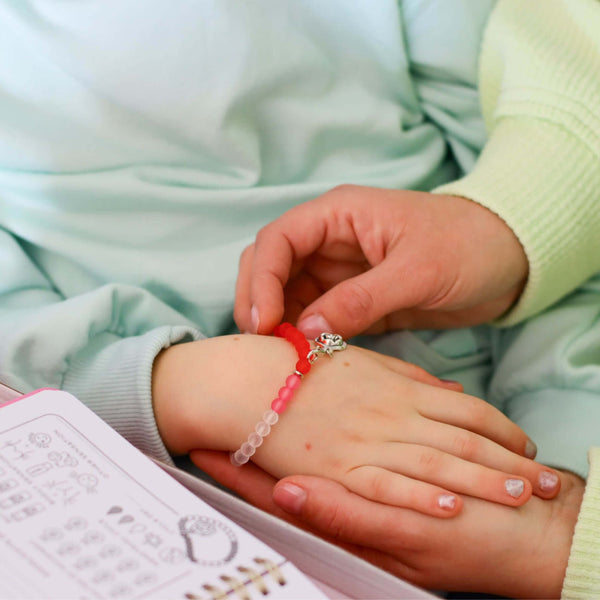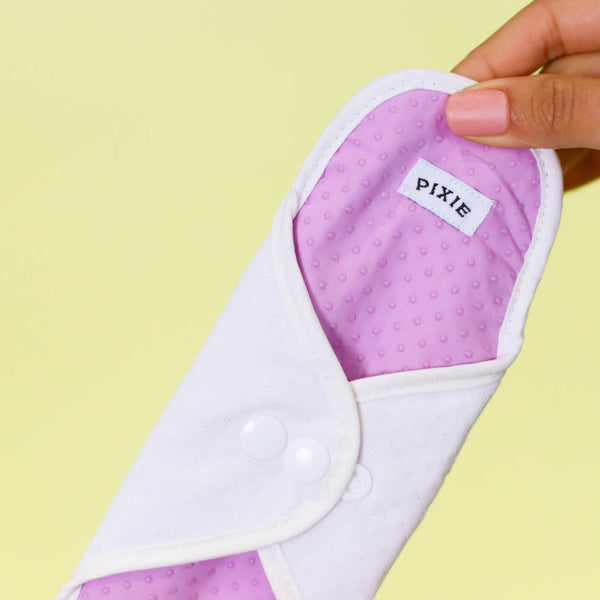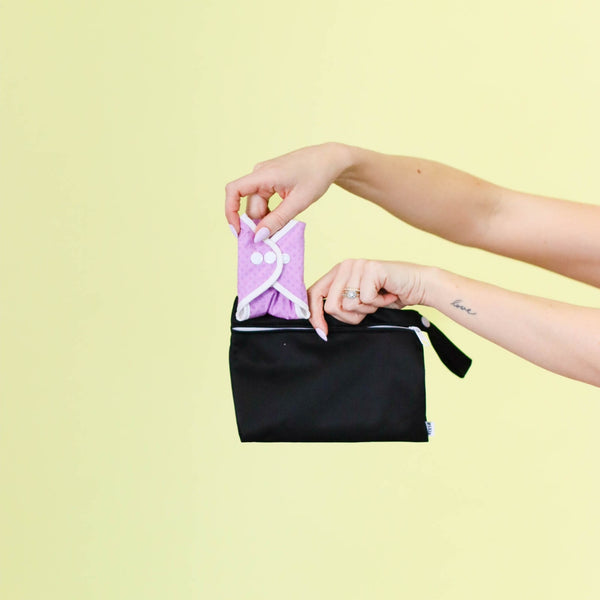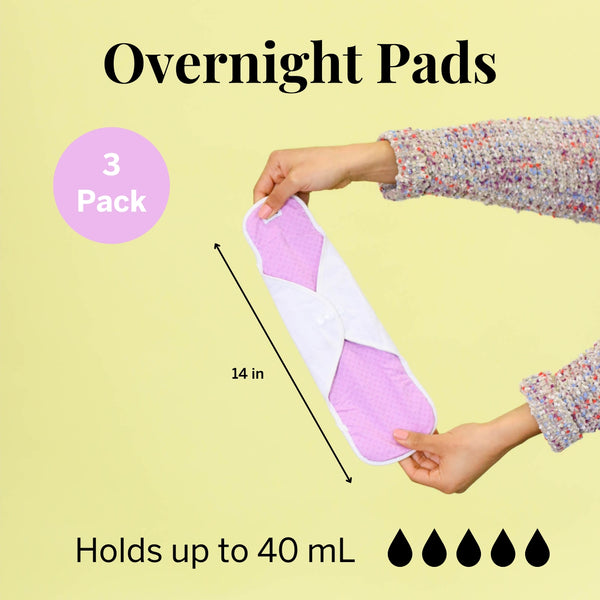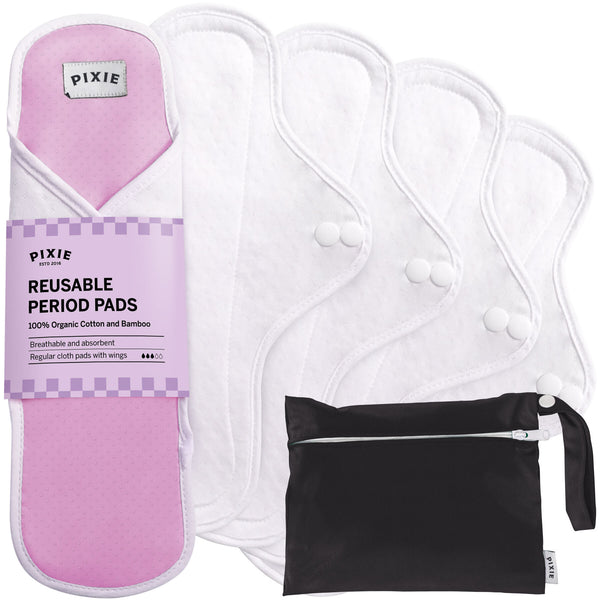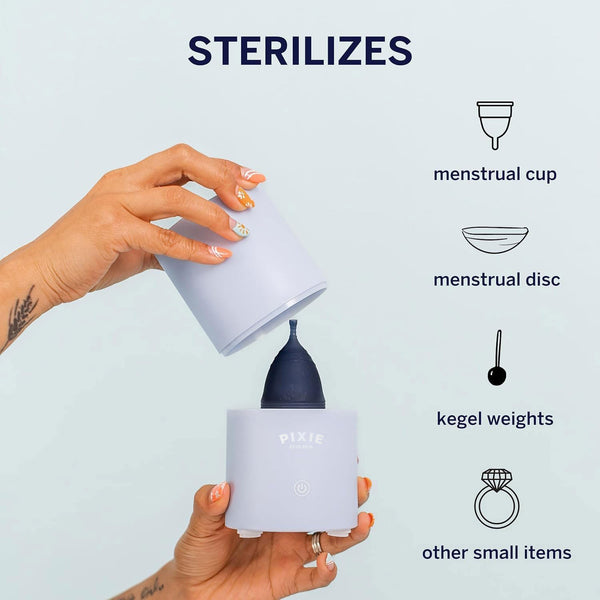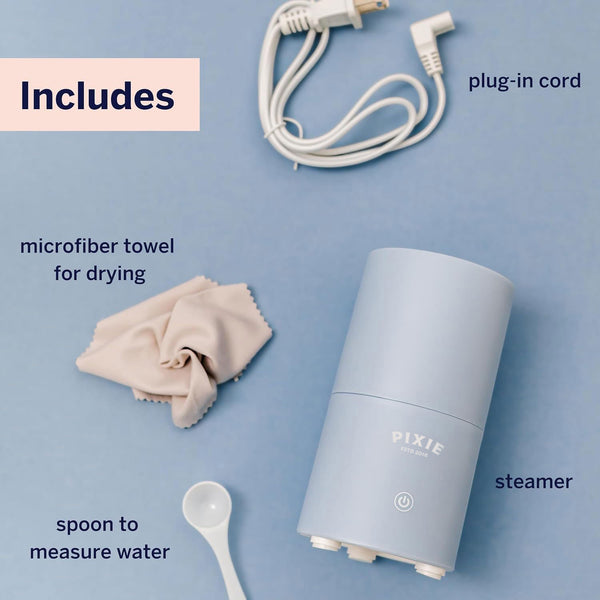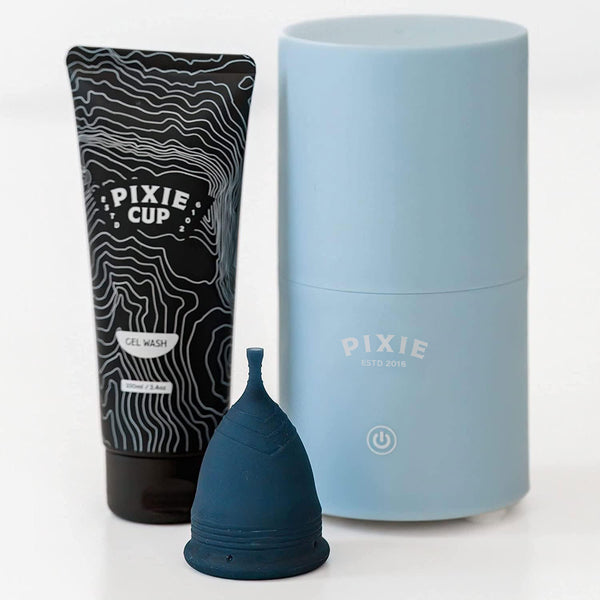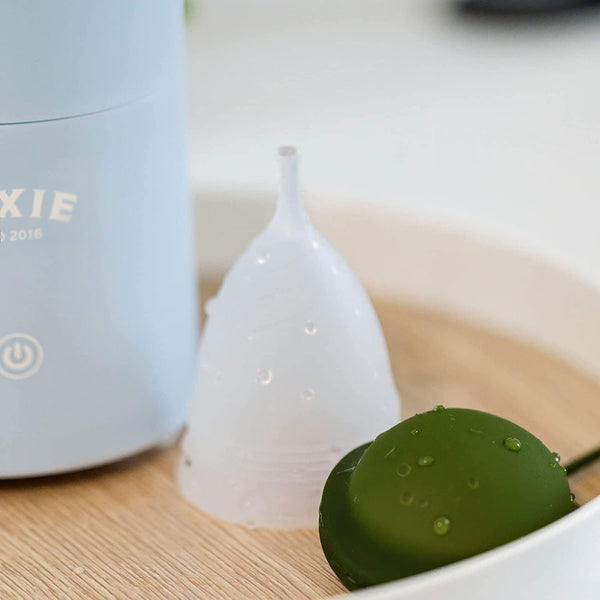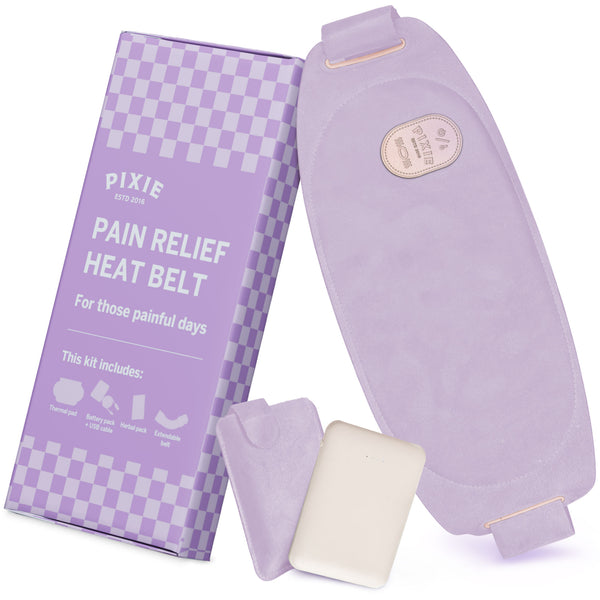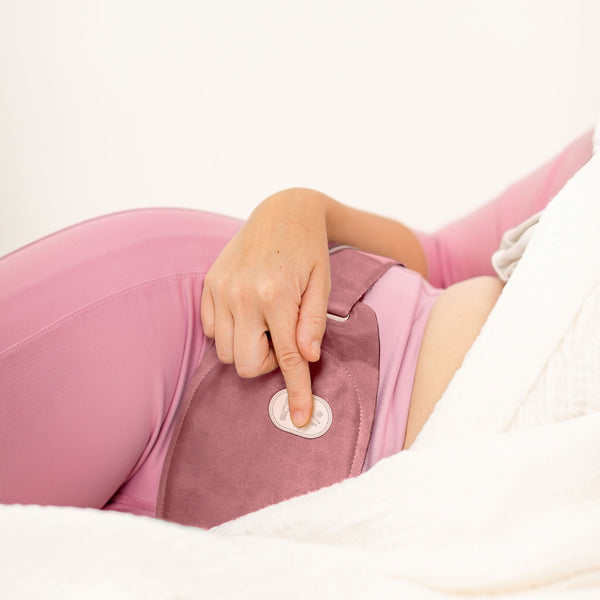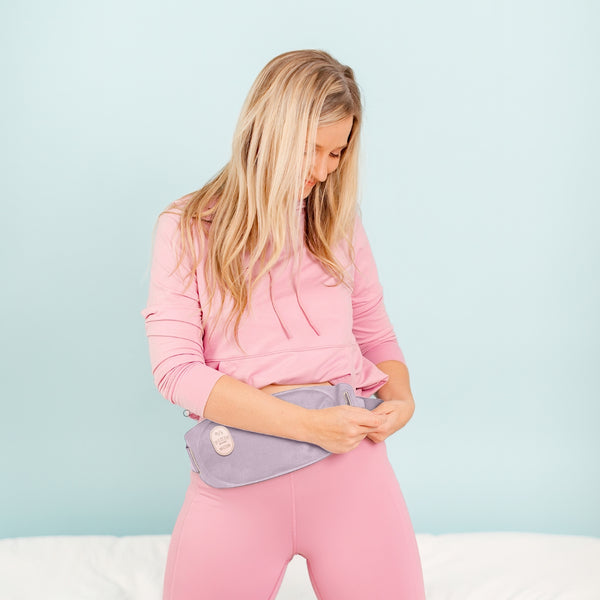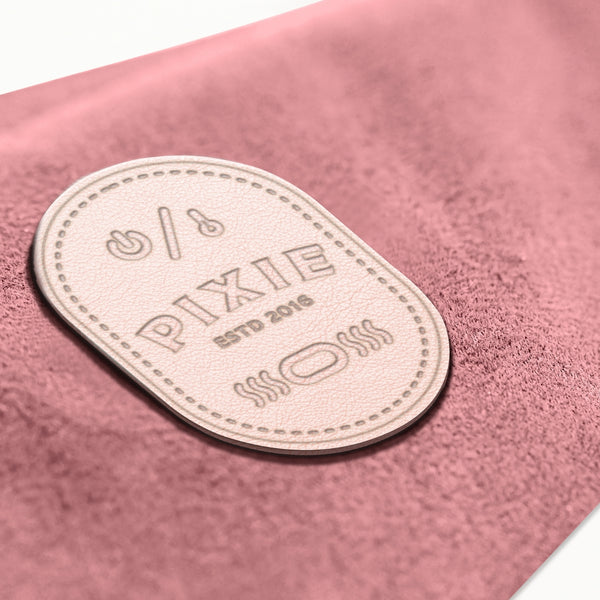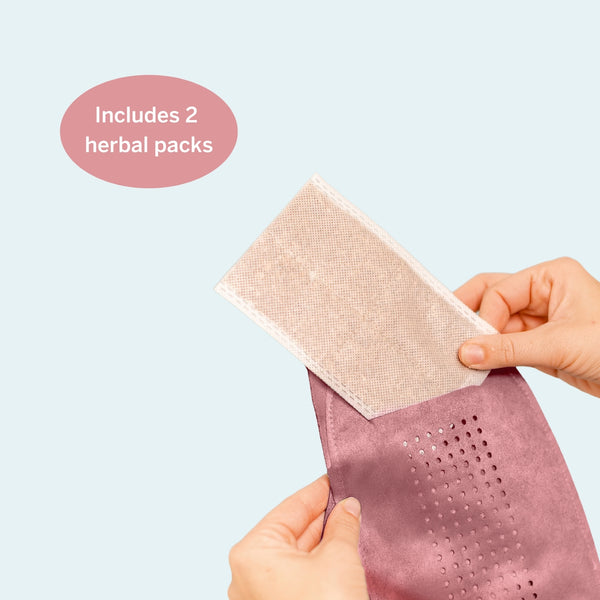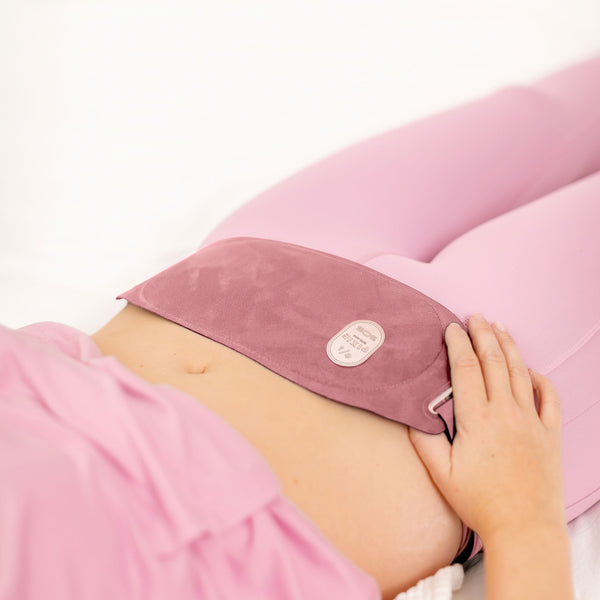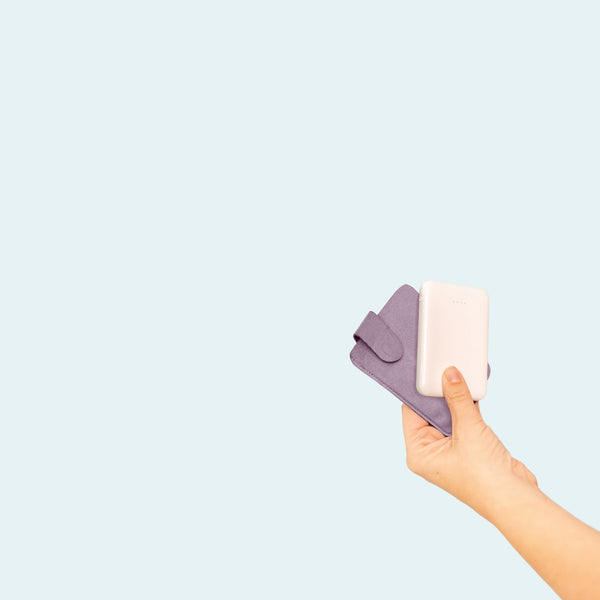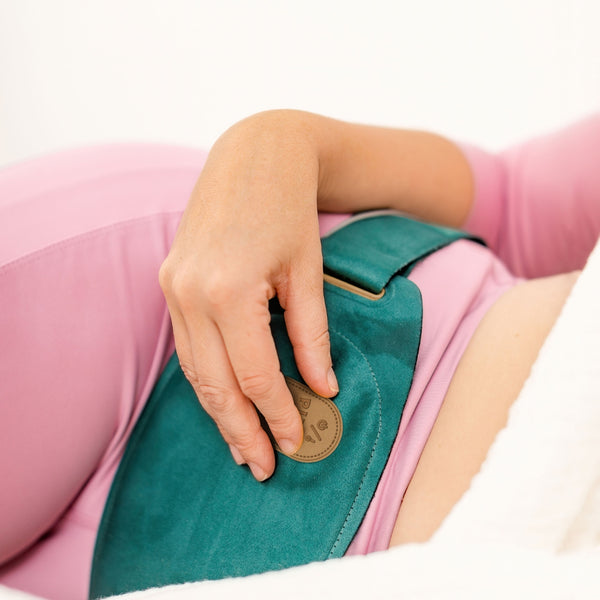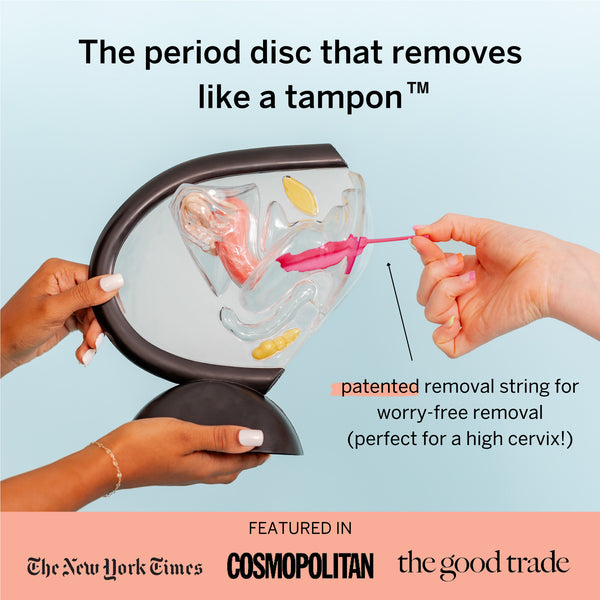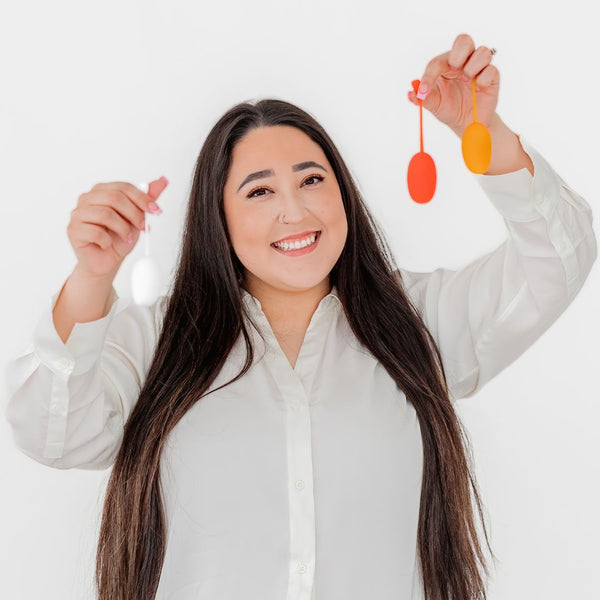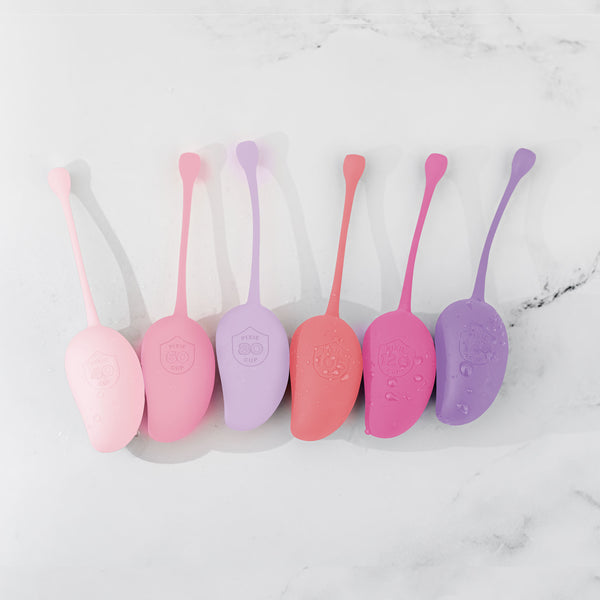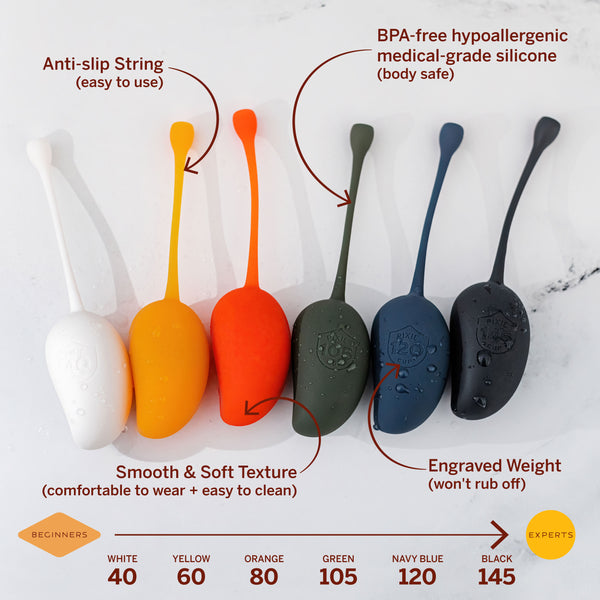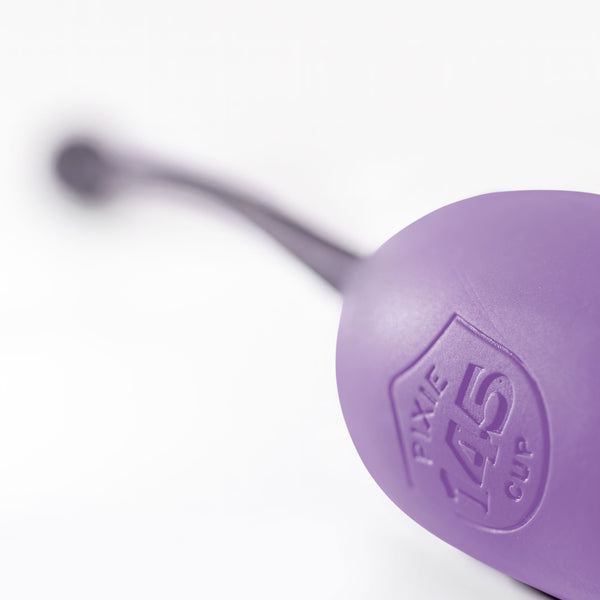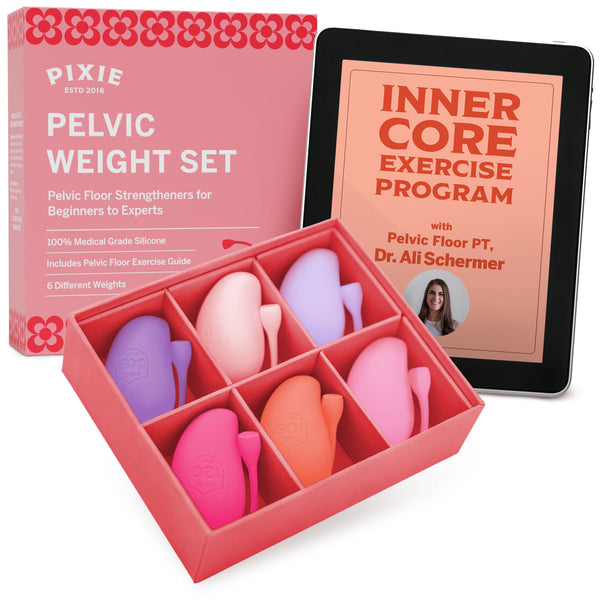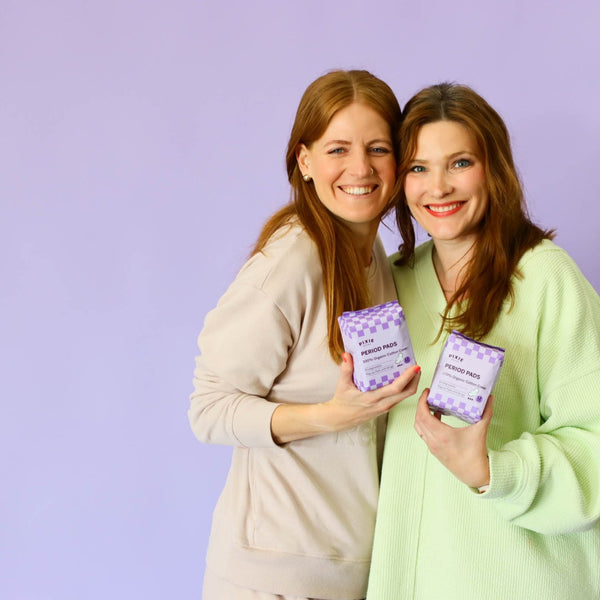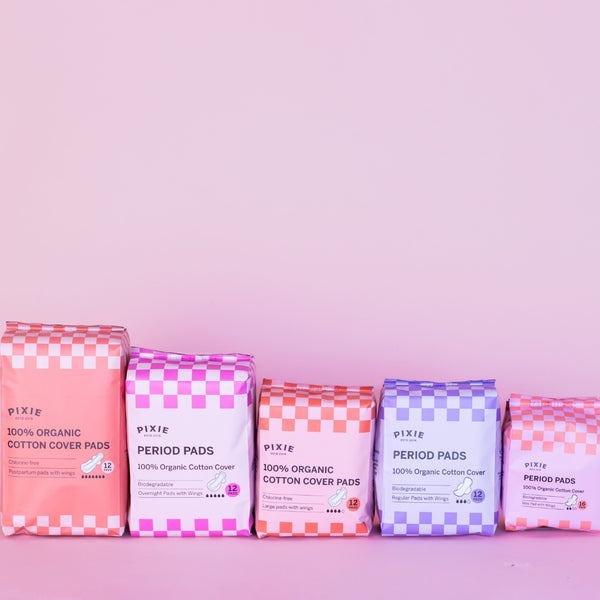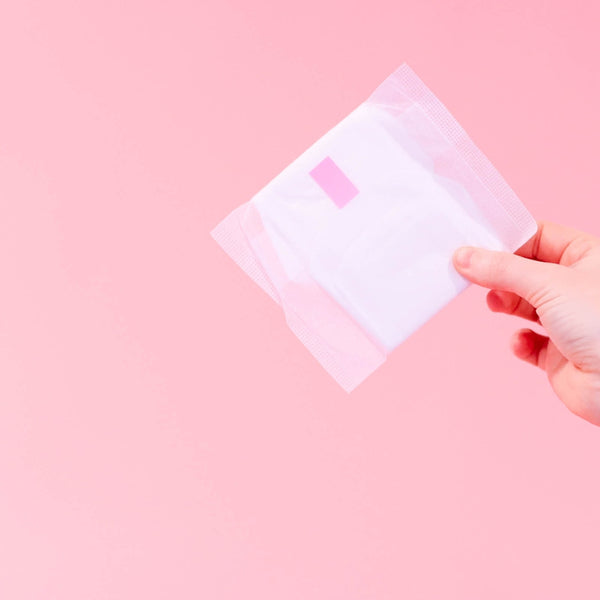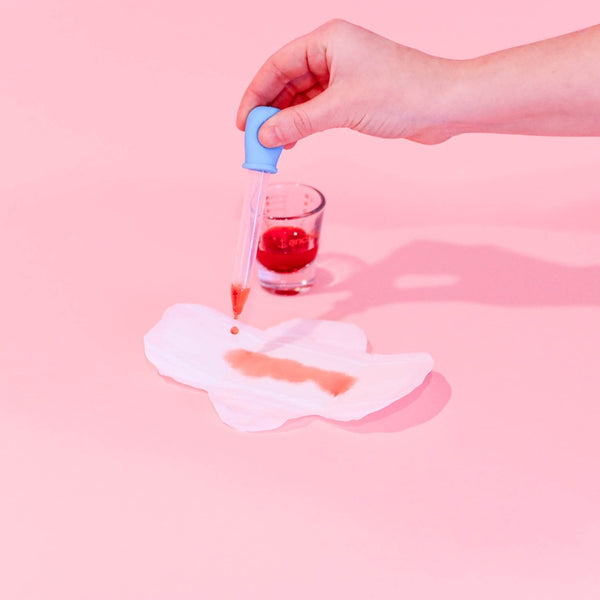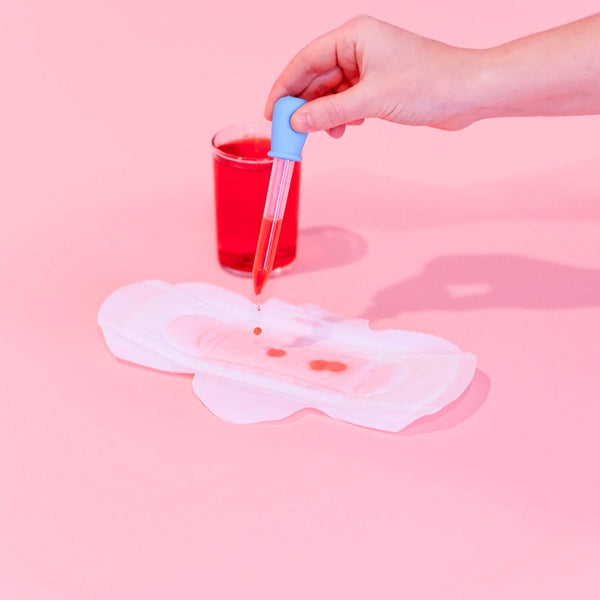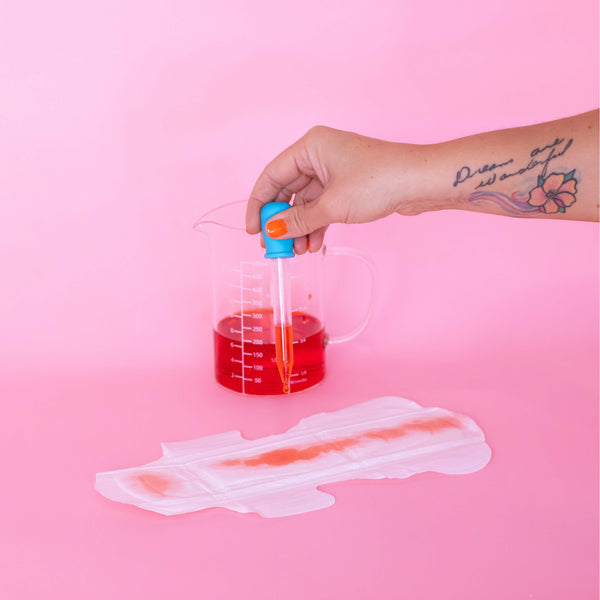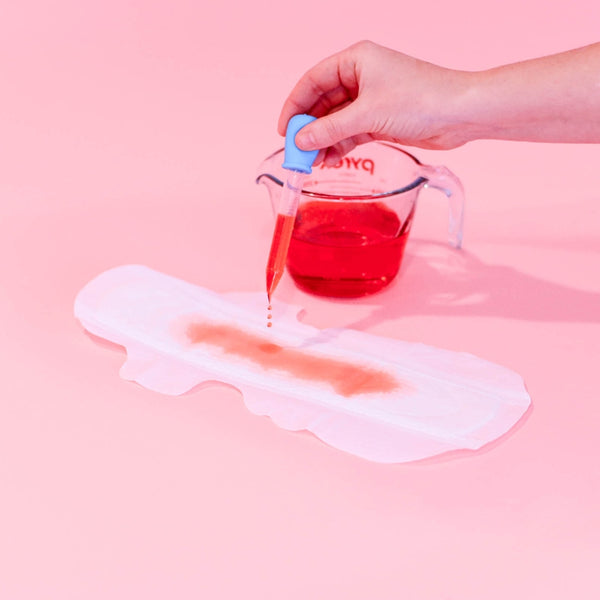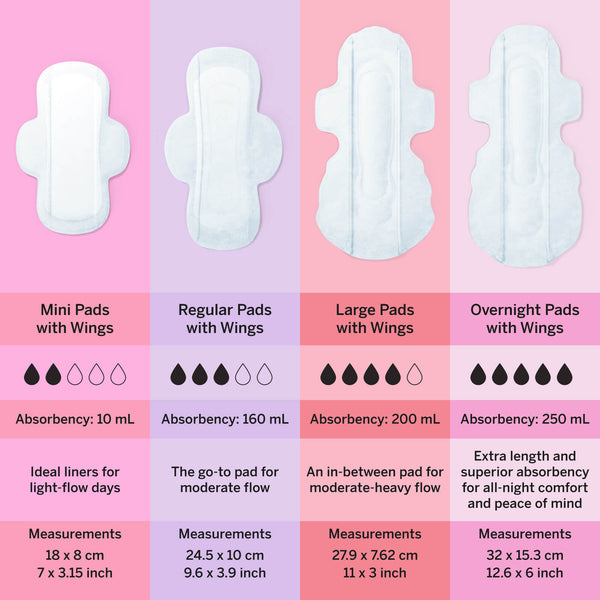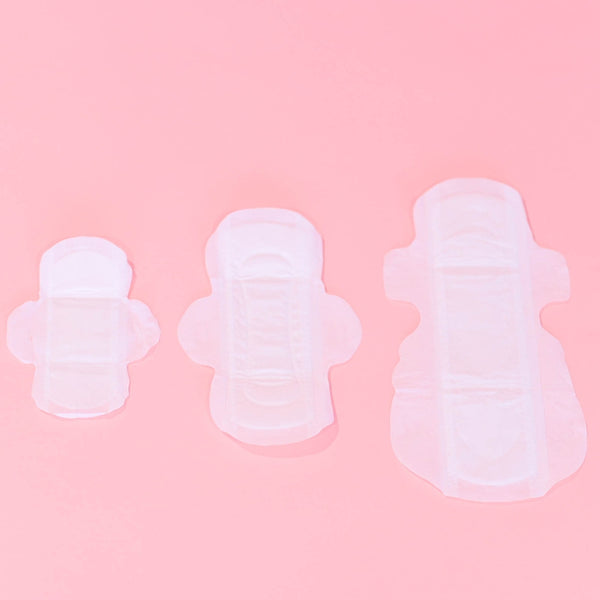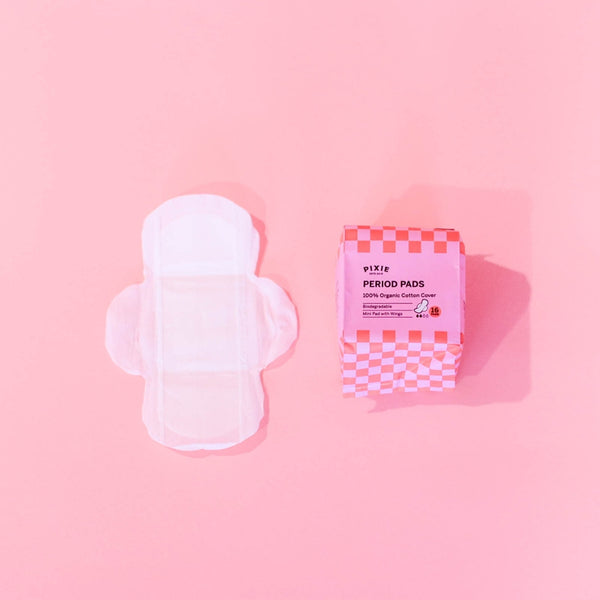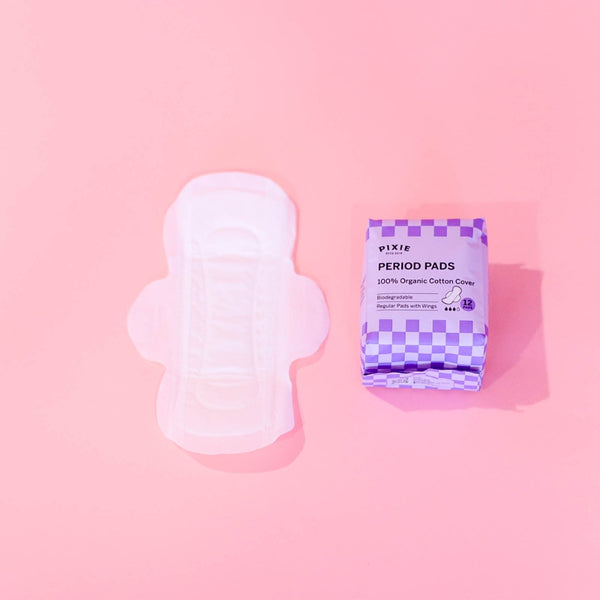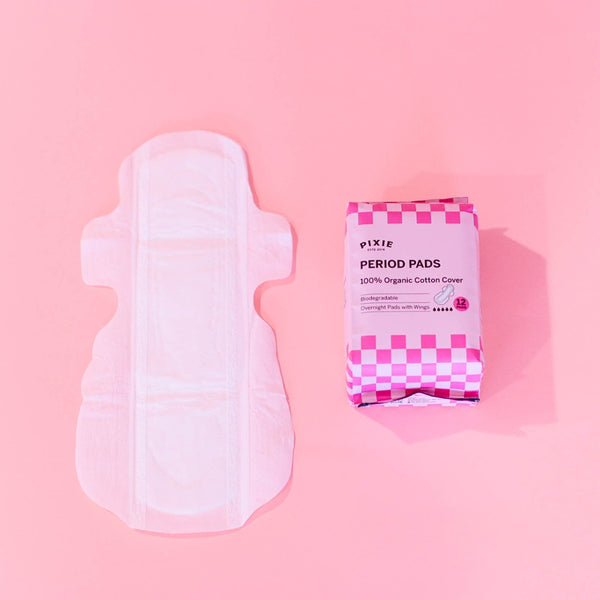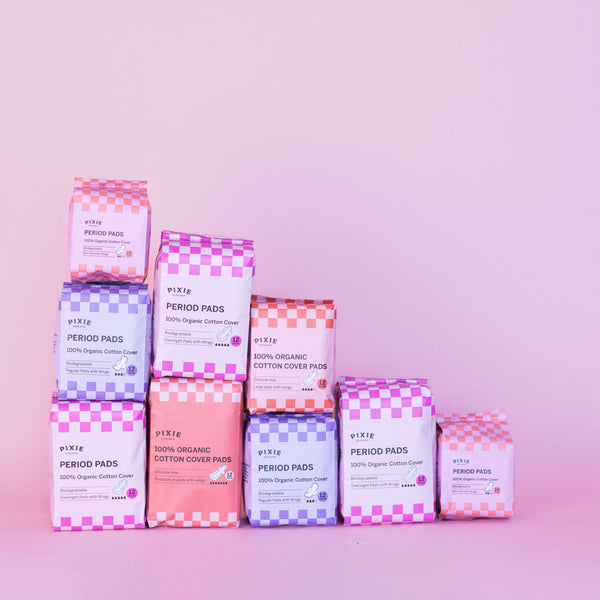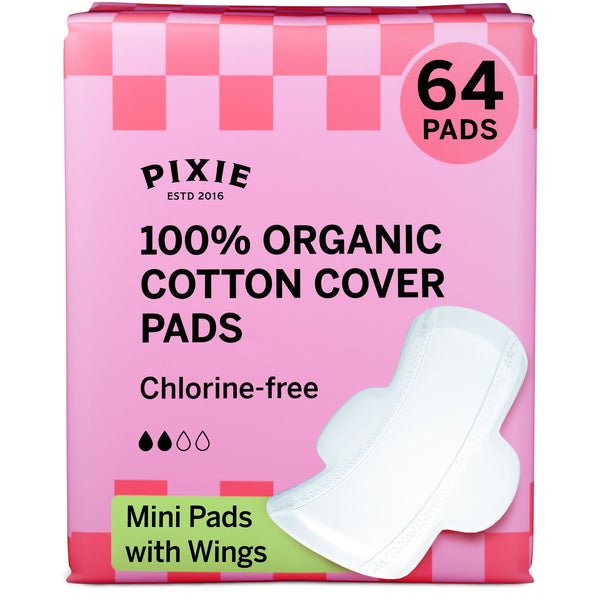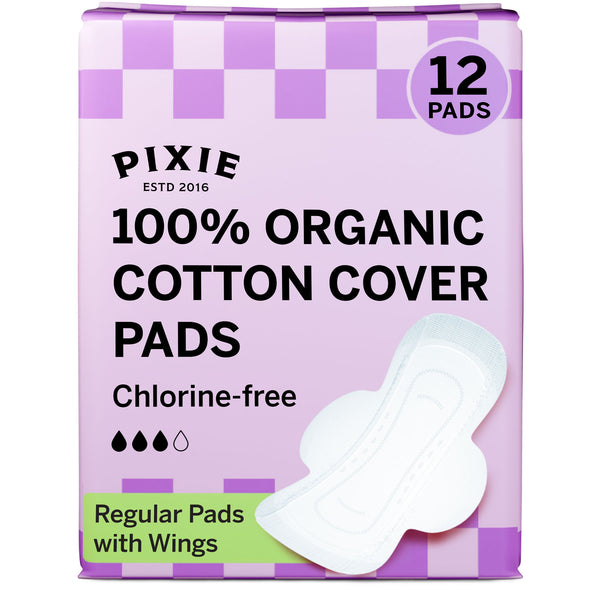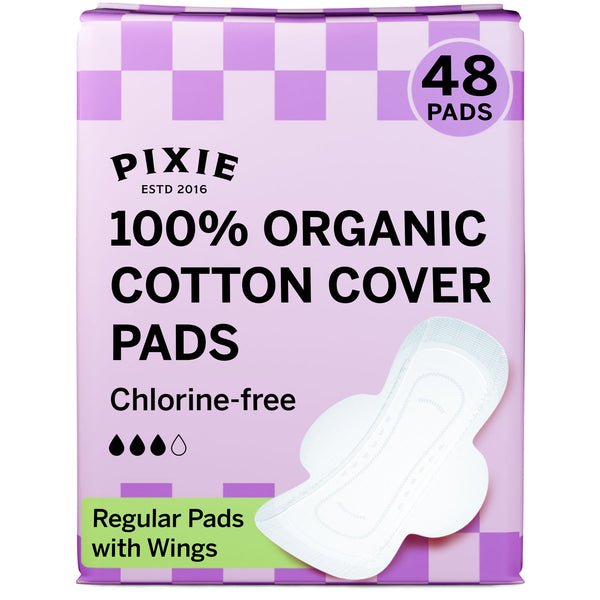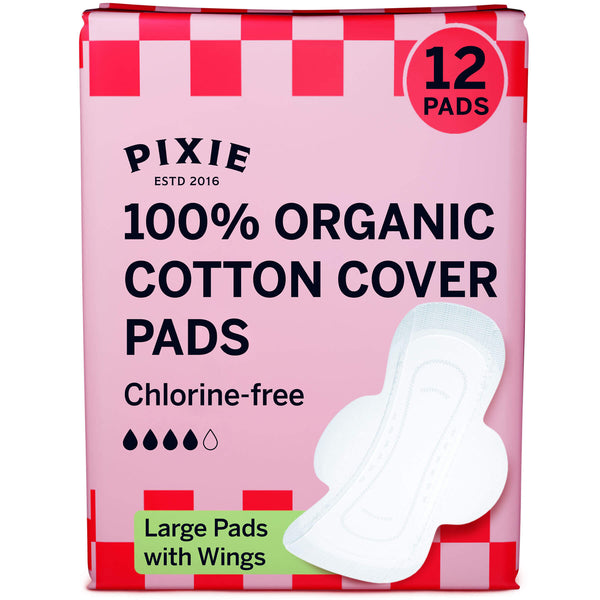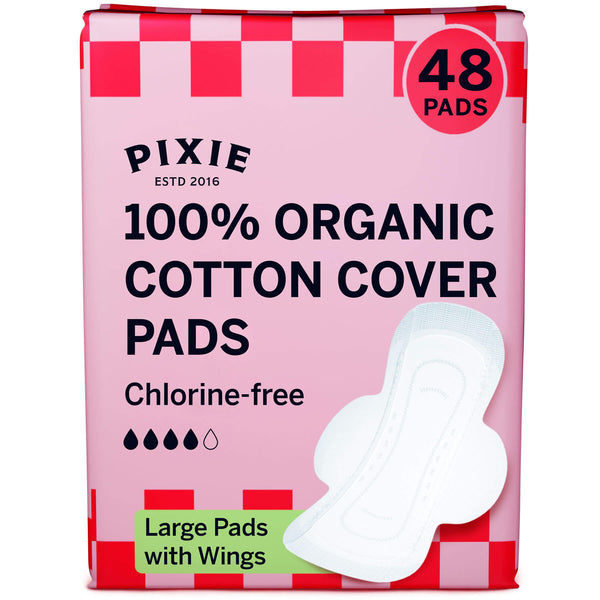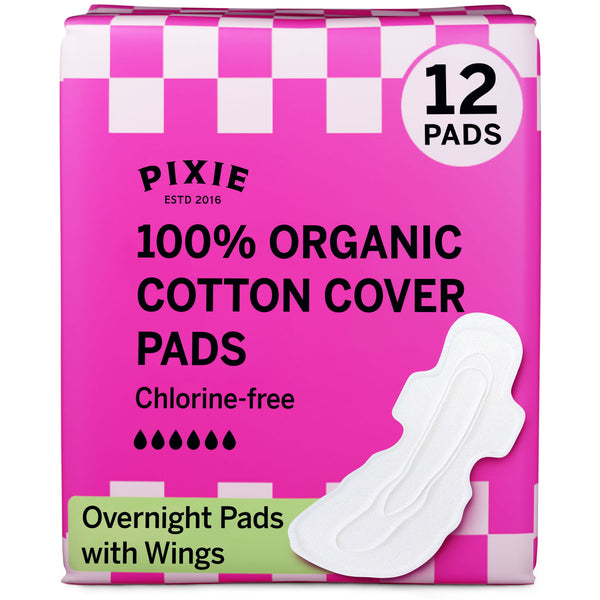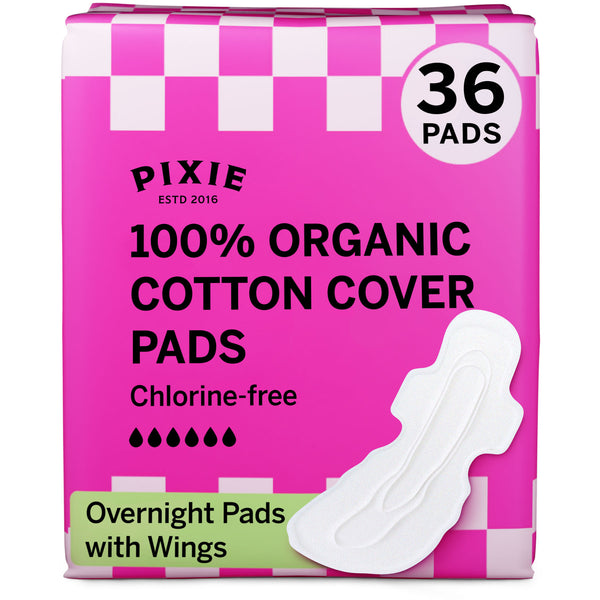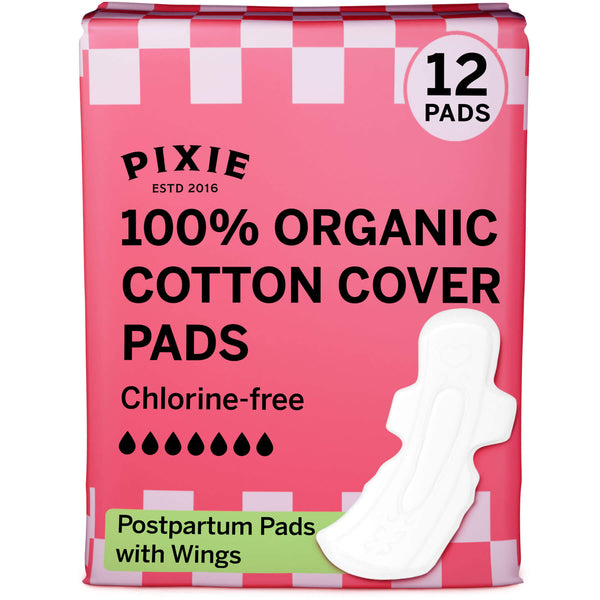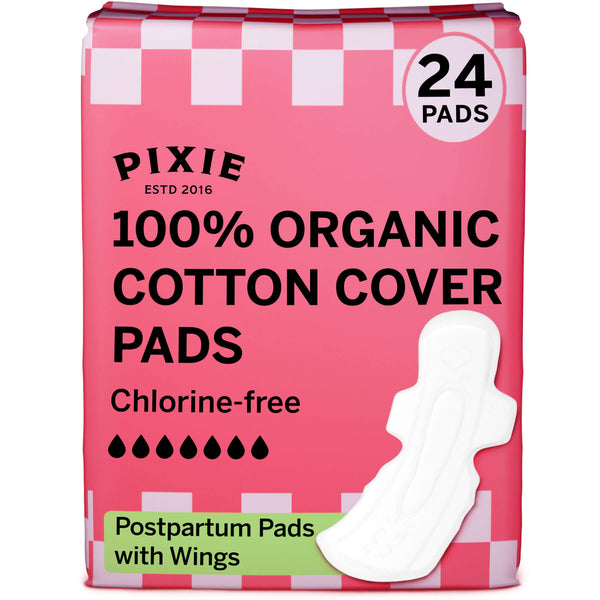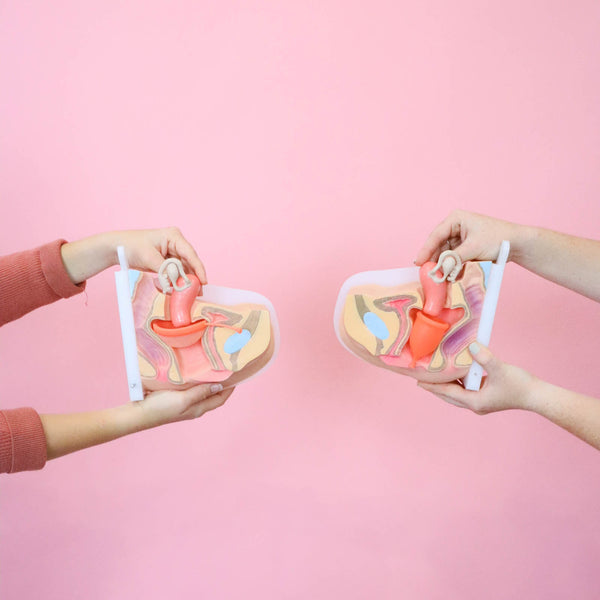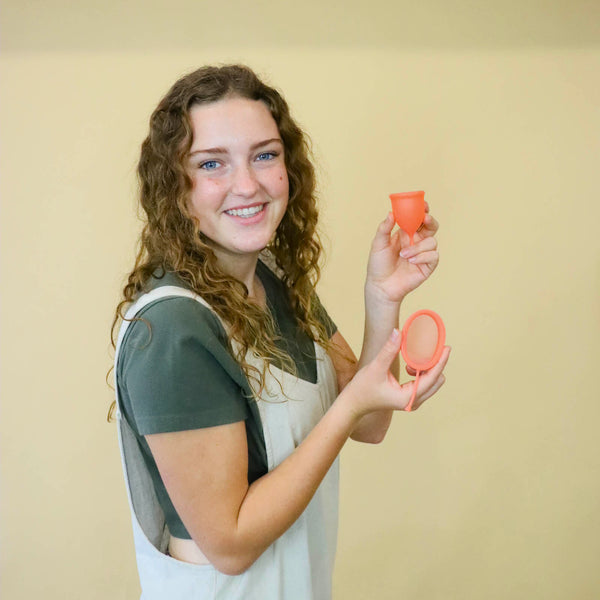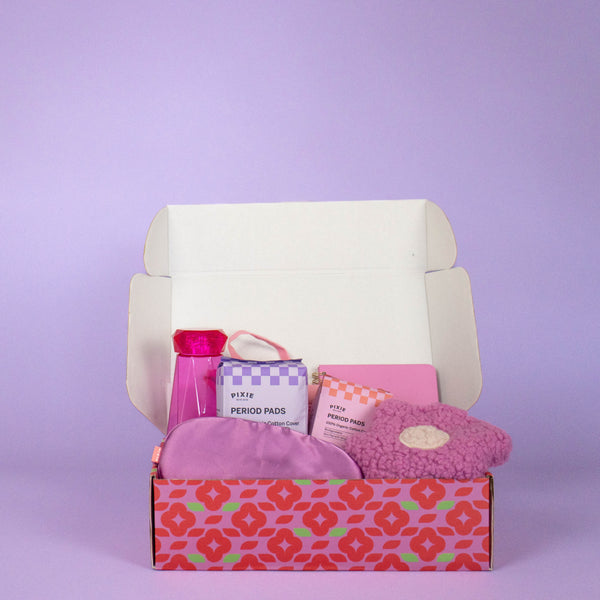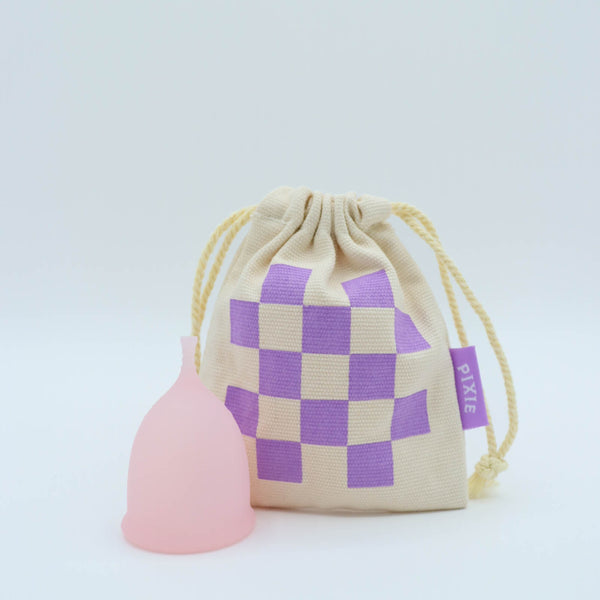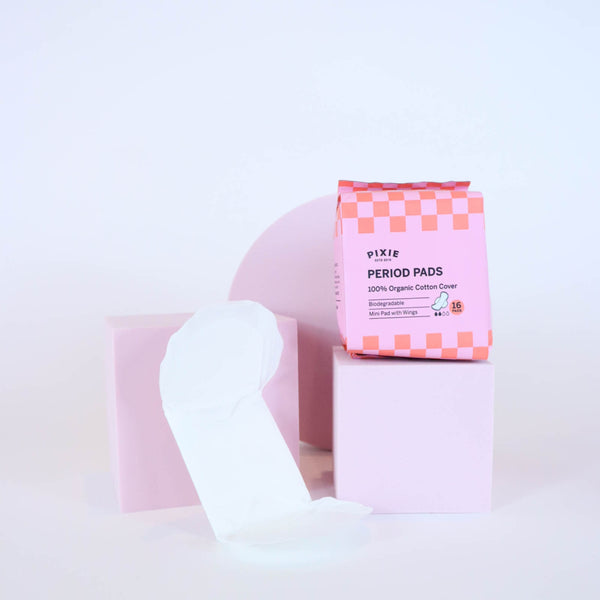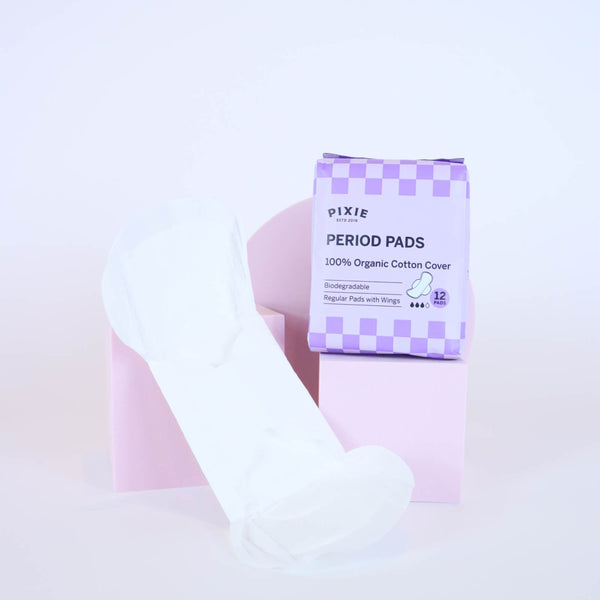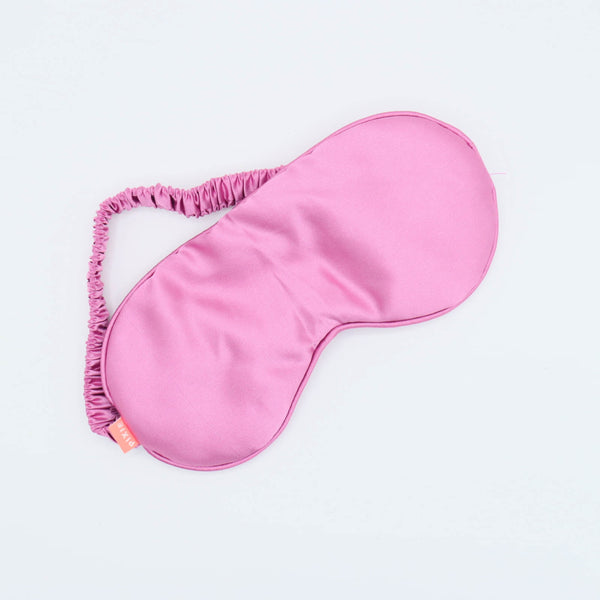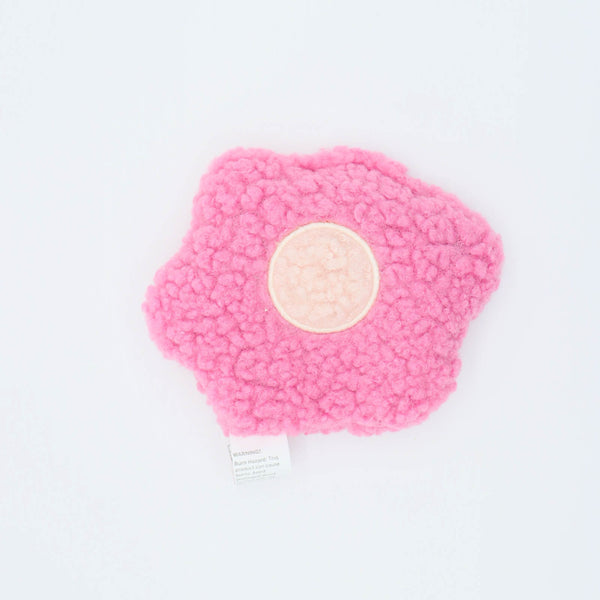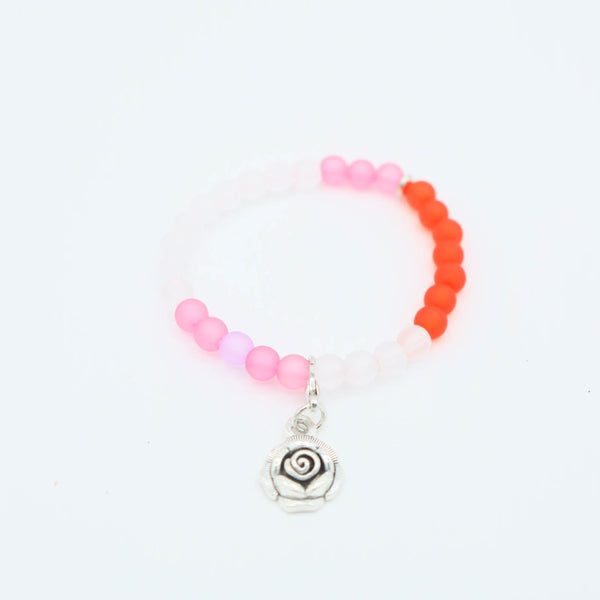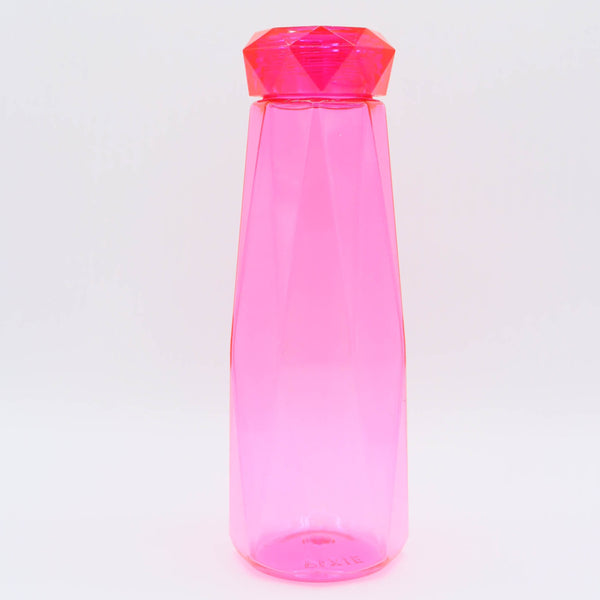Gut health and your period
“How are your bowel movements?” This was one of the first questions that my Naturopathic Doctor asked me, and I looked at her like she was crazy because I was there for my newly diagnosed PCOS, MIA periods, and infertility — not to talk about my bowels. That was the moment I learned that our gut health is a vital component to our hormone health. The gut-hormone connection is real, and I am HERE FOR IT!

Our gut microbes are absolutely incredible, and in healthy adults, there are upwards of 100 TRILLION microbial cells living in the gut (around five pounds)! When I heard this number, I immediately wanted to start singing…. “I’ve got friends in low places…” Anyone else? No, just me … cool,cool,cool. Anyway, these gut bugs are our friends, not foes.
What are the symptoms of an unhealthy gut?
Imagine yourself in a jungle for a minute, and think about all the different animals and plants and how they all have a purpose, even the snakes and mosquitos. Ecosystems thrive on balanced diversity and it’s no different for our gut microbiome.
Inside us, there are anywhere from “300 to over 1,000 different species of bacteria (out of the 15,000 to 36,000 in existence)” (Bulsiewicz, 2020, 6). When we lack gut diversity, the result is an imbalance known as dysbiosis, and our immunity, metabolism, mood, and menstrual cycles all take a hit.
Dysbiosis is essentially when the bad bacteria outweigh the good bacteria in our guts. How do you know if you have a bacterial imbalance? Intestinal and extraintestinal (outside of the intestine) symptoms are listed below. Print this off and check off your symptoms, and as you work towards improving your gut health, periodically reassess your symptoms.
Gut health assessment
- Abdominal pain/cramping
- Gas
- Bloating/Abdominal distension
- Food sensitivities
- Food allergies
- Diarrhea
- Constipation
- Mucus in stool
- Foul smelling stool
- Nausea
- Indigestion
- Heartburn/reflux
- Belching immediately after a meal
- Unexplained weight gain
- Unexplained fatigue
- Brain fog
- Difficulty concentrating
- Mood imbalances
- Anxiousness
- Skin breakouts (eczema, acne, hives)
- Joint pain or muscle aches
- Weakness
- Hormone imbalances
ANSWER KEY (Brighten, 2020, 104)
- 1 or 2 boxes checked = High gut health; mild dysfunction or imbalance
- 3 or 4 boxes checked= Intermediate gut health; moderate dysfunction or imbalance
- 5 or more boxes checked = Low gut health; severe dysfunction or imbalance
Does gut health affect hormones?
The gut is deeply involved in hormone balance, and a healthy gut = healthy hormones. Gut dysbiosis can play a major role in poorly managed estrogen levels. In the blog post, PMS symptoms are common, but not normal, I mentioned that excess estrogen and/or unopposed estrogen can be fuel for PMS symptoms. Continue reading to learn how our gut influences estrogen levels!
The estrobolome
Let me introduce you to the estrobolome! The estrobolome (estrogen + microbiome) hosts specific gut microbes that secrete an enzyme known as beta-glucuronidase. As Goldilocks would say, beta-glucuronidase keeps estrogen levels “juuuuuuust right” to keep our skin clear, periods powerful, and libido humming.
If you struggle with gut dysbiosis, then your estrobolome will improperly convert or absorb estrogen. High estrogen can cause acne, breast pain, low sex drive, heavy periods, anxiety, depression, and longer term effects such as uterine fibroids and breast cancer.
On the other hand, low estrogen leads to problems with sleep, mood swings, vaginal dryness, UTIs, low libido, and loss of bone density (Romm, the estrobolome). Also, because estrogen plays such a vital role in multiple systems throughout the body, a dysfunctional estrobolome also “impacts cardiovascular disease, metabolic syndrome, cognitive function including a decline in memory, and estrogen-related cancers including endometrial, cervical, ovarian, and breast cancer” (The Estrobolome: The Fascinating Way Your Gut Impacts Your Estrogen Levels, n.d.).
Endocrine and hormonal conditions associated with gut dysbiosis
- Endometriosis
- PCOS
- Endometrial Hyperplasia
- Female Infertility
- Sexual Dysfunction
- Hypothyroidism
- Breast Cancer
- Endometrial Cancer
- Uterine Fibroids
Can my gut health affect my period?
Every menstruator has a unique period and a unique gut microbiome. When our gut microbiome is balanced, you should have a, dare I say … pleasant period experience. Yes, our periods can be pleasant, and our gut’s estrobolome has a huge role in making that a reality.
If you remember, beta-glucuronidase is secreted from the estrobolome to manage estrogen levels, and if you have low microbial diversity, then your estrobolome improperly converts or absorbs estrogen. If estrogen is too high, you may experience heavier, darker, and more painful periods; you may also notice more clots (larger than a dime) in your menstrual fluid.
If estrogen is too low, you may notice a very scant amount of menstrual fluid (less than 25 ml, or bleeding for less than 3 days). The color of your menstrual blood may also be affected by estrogen levels; higher estrogen levels may lead to a darker violet color, and lower estrogen may result in a very light pink color.
What disrupts gut balance?
We live in a culture that is not very conducive to gut balance, and the truth is, most everyone living in the Western world has some level of gut disruption. Many lifestyle and dietary factors affect our gut balance such as:
- Processed foods
- Alcohol
- Stress
- Sleep disruptions
- Lack of exercise
- Environmental toxins
- Certain medications (birth control pill, NSAIDS, antibiotics).
These factors can build up and wreak havoc on our guts.
How to fix gut health
I want each and every one of you to experience microbiome bliss … no more bloating, constipation, loose stools, gas, pain, or hormonal chaos!
Improving your gut health does not have to be hard, but If you struggle with chronic gut health issues, I would advise working with a Registered Dietitian that specializes in women’s health/hormones. My favorite RD (Registered Dietician) is @thewomensdietitian. You can find a RD near you by visiting www.eatright.org. Easy first steps are listed below.
1. Eat to improve gut health
I wish I could tell you one superfood that would heal your gut in a matter of seconds, but unfortunately that just isn’t the case. I could tell you that kale is a superfood, and if all you ever ate was kale, you would be incredibly unhealthy. The true magic happens when we diversify!
Diversity in your diet is key to a healthy microbial culture. Random fact: There are over 300,000 plants on earth, so why not take advantage of all this plant-diversity? I love the way Dr. B., author of Fiber Fueled, lays out his favorite gut-healing, “fiber fueled foods” (Bulsiewicz, 2020, 152):
F GOALS
F: Fruit + Fermented
G: Greens + Grains
O: Omega-3 Super Seeds
A: Aromatics (onions, garlic)
L: Legumes
S: Sulforaphane (cruciferous vegetables), Shrooms, Seaweed
F: Fruit + Fermented
- Up to 2 servings/day of either one serving of berries (1 cup) + 1 serving (1 cup) of another fruit, or 2 servings of berries. Pro Tip: opt for wild blueberries, they have more antioxidants!
- 2-4 Tbsp/day of fermented foods: Chickpea/rice miso, coconut yogurt, kimchi, pickled veggies, sauerkraut
G: Greens + Grains
- 2 servings/day of greens: kale, collard greens, spinach, arugula, bok choy, romaine
Pro Tip: “Steam your greens to improve bile-salt binding activity! This helps protect against cancer, specifically colon and liver cancer” (Bulsiewicz, 2020, 157)
- 1 serving (1 cup) of grains/day: brown rice, buckwheat, millet, oats, quinoa, red/pink/black rice, wild rice
O: Omega-3 Super Seeds
- 3-4 servings/week; 1 serving= ¼ cup seeds or 1T seed butter: chia, flax, hemp, pumpkin, Sesame, sunflower, tahini. Pro Tip: Buy ground flaxseed or grind it at home; ground flax is more absorbable! Put it in the fridge to maintain freshness.
A: Aromatics + herbs and spices
- Include 3 herbs and spices in your cooking daily: basil, cardamom, chives, cinnamon, cumin, curry, dill, garlic, ginger, oregano, onion, thyme, turmeric, za’atar
L: Legumes
- At least 2 servings/week; 1 serving= ½ cup cooked: black ceans, chickpeas (garbanzo beans), lentils, tempeh, tofu, white beans (cannellini or northern)
S: Sulforaphane, Shrooms, Seaweed
- Sulforaphane (cruciferous vegetables), up to 2 servings/da ; 1 serv= 1 cup: broccoli, broccoli sprouts, arugula, cabbage, cauliflower, Brussels sprouts. Pro Tip: “Even a pinch of mustard powder to cooked cruciferous can offer anti-cancer sulforaphane levels comparable to raw, removing the necessity to pre-chop for maximum health benefits” (Greger, 2014).
- Include mushrooms in your 8 servings/day of vegetables: white, cremini, oyster, portobello, maitake, reishi, cordyceps. Pro Tip: Make sure to cook your mushrooms. Some varieties contain a substance called agaritine, which can be carcinogenic, but is reduced when cooked down (Bulsiewicz, 2020, 167).
- Seaweed has great fiber content and is an excellent source of iodine and B12, which improves thyroid health: nori, kelp/kombu, wakame, spirulina. Pro Tip: You can buy spirulina powder and add it to your smoothies without a fishy taste!
I know this may be hard to follow 100% of the time, but it is okay to indulge now and again. The best rule is 95/5: 95% of the time, we are choosing foods that get us closer to our goals, and the other 5%, you can treat yo self! Balance is the key to life.
2. Limit sugar
Have you ever made bread before? If you have, then you know the three basic ingredients are flour, sugar, and yeast. Yeasts feed on sugars and starches. They turn this food into energy and release carbon dioxide gas. This process is known as fermentation.
The carbon dioxide gas made during fermentation is what makes a slice of bread so soft and spongy. This is great if we’re making bread, but adding excess sugar to our guts can lead to severe gut dysbiosis and cause symptoms such as bloating, making us feel soft and spongy as well. The bad bacteria are the ones that love to feed on sugar and starches, and the more we feed them, the more dominant they become.
Try to limit the amount of sugar in your diet. This includes candy, cookies, and baked goods as well as many packaged foods. Even foods that seem healthy — such as yogurt and salad dressing — are often loaded with added sugars. Get in the habit of reading ingredients labels, and choose foods that contain less sugar, or natural sweeteners such as stevia.
3. Limit alcohol
Ooph, this one may not be what you want to hear. Alcohol has been shown to “increase intestinal permeability and the release of bacterial endotoxins” (Bulsiewicz, 2020, 189). Elevated estradiol levels have been found after alcohol consumption, and since alcohol affects our liver and our guts, that excess estrogen will not get excreted properly.
4. Stay hydrated
You can go 3 weeks without food, but no more than 4 days without water! Sixty percent of our bodies are composed of water, so it’s safe to say it’s pretty important to overall health. Water does not have to be boring; you can add some lemon or do overnight infusions with cucumber, watermelon, or mint. When it comes to water, it’s hard to drink too much. Most of us can ADD MORE!
5. Take out the trash
When is the best time to go to the bathroom?… Poo-Thirty (slaps a knee). In all seriousness, “taking out the trash” is essential to hormone balance and gut health. How often are you pooping? If your answer isn’t “everyday,” then you have some work to do.
Daily poops are #goals. A daily bowel movement will help your body get rid of toxins, balance hormones, and improve overall gut health. How do you know if your poo-poos are healthy? I’ll give you some hints (you should be checking all of these boxes):
- Daily occurrence
- Painless, no straining. Pro Tip: use a Squatty Potty. It puts you into a better position and saves your pelvic floor from undue stress.
- Formed, not too soft or too hard
- Medium to dark brown in color
- Not foul-smelling
- Ideally not more than a couple pieces
Having trouble pooping? Make sure you are getting enough water and fiber (35g/day). Also make sure you are exercising. Movement = movement ;). If you are still struggling, try Magnesium Citrate (150-300mg) before bed to help get things moving.
6. Stress less, sleep more
Sleep is rest for the entire body, including the gut. You want to know the best part? Sleep is FREE! Yep, you do not have to pay a dime to sleep, so catch them zzzz.
Want better sleep? Magnesium citrate is not only good for bowel movements but also helps you sleep better. Win-win. Start winding down when the sun goes down to allow the gut to produce melatonin to help you fall asleep.
Also, you can eat all the good things, exercise, sleep, etc., but if you are not managing your stress, then you are stressing out your microbiome. Stress directly affects the microbiotoa balance and increases intestinal permeability. Stress is an unavoidable part of life for most of us, but it’s important to take steps to manage it and reduce it as much as possible.
7. Pass on unnecessary pharmaceuticals
In today’s world, we are overworked, undernourished, and overmedicated. Most medications have unintended consequences, including damage to our guts. Now I am not saying stop all the medications you are on, and always speak to your primary care physician before stopping any medications. With that being said, there are 5 main medications that are disrupting our guts: antibiotics, NSAIDs, proton pump Inhibitors, Tylenol, and the hormonal birth control pill.
- Did you know that over “70% of prescribed antibiotics are medically unnecessary?” (Romm, 2021, 201). One round of antibiotics can clear out an entire species of your gut microbiota. So take antibiotics only when necessary. Also be aware of the meat you are buying, and ensure that you are buying meat that has been raised without antibiotics.
- NSAIDs include ibuprofen, Aleve, and Motrin. This is a big one for us ladies, because when it’s that time of the month, some of us will gravitate towards these medications to calm period cramps. An average period lasts approximately 5 days; if you take an NSAID for 5 days straight, this can lead to GI bleeding and chronic gut inflammation in many users. NSAIDs have also been shown to reduce ovulation, leading to lower levels of progesterone and reduced fertility.
- PPIs, or proton pump inhibitors, include Prilosec, Prevacid, Nexium, and other antacids. These are usually used to treat GERD (gastroesophageal reflux disease). PPIs affect vitamin B12 absorption and can increase the growth of bacteria in the small intestine, AKA Small Intestine Bacterial Overgrowth (SIBO) (Romm, 2021, 203).
- Tylenol can ruin the lining of our stomachs, leading to GI bleeding and problems with nutrient absorption. Tylenol also depletes glutathione, which is a powerful antioxidant in our bodies. The liver needs glutathione to function, so if we are low on glutathione then the liver and gut cannot detoxify and eliminate unwanted toxins and excess hormones.
- The hormonal birth control pill, especially the estrogen-based ones, can increase intestinal permeability and deplete the body of nutrients. Every woman has a choice in what birth control option they want to use, and I am not anti-pill; I am pro-education. The pill is appropriate in some situations, but make sure you are taking a quality multivitamin and maintaining good gut-health.
Best supplements for gut health
If you have implemented all the above steps for at least 6 weeks and are still not experiencing microbiome bliss, then it may be time to supplement. All in all, supplements are meant to supplement diet and lifestyle, not replace them. Below is a list of common supplements, but always speak to your primary care physician, registered dietitian, naturopathic doctor, or functional medicine practitioner before starting supplements.
Vitamin D
- Take 2000 IU/day to maintain current levels
- Optimal Level is 60-80ng/mL
- If deficient, work with doctor for proper dosing
- Fav Brand: Thorne Vitamin D3 Drops
Omega-3 Supplement
- Take 1000-4000mg of combined EPA/DHA
- Fav brand: Nordic Naturals
Magnesium Citrate
- Take 150-300 mg, 30 min before bed/day
- Fav Brand: Thorne CitraMate, VitaPCOS Magnesium
Multivitamin/Prenatal
- Take as prescribed
- Fav Brand: Thorne Multi/Pre, Theralogix Prenatal
Probiotic
- Should contain at least 10billion CFUs of a variety of lactobacillus and bifidobacterium species
- Start with a lower dose if you experience bloating/gas
- Always check that the product is third party tested for quality assurance
- Fav Brand: Thorne Floramend
PLEASE NOTE: This blog post is not intended as a substitute for the medical advice of your doctor. You should regularly consult a physician in matters relating to your health and particularly with respect to anything related to menstruation, pelvic floor, bowel movements and urination.
References
Briden, L. (2017, March 15). Your gut and your hormones – Causes of Female Hormone Changes. Clue app. Retrieved November 26, 2021, from https://helloclue.com/articles/cycle-a-z/how-your-gut-affects-your-hormones
Brighten, J. (2020). Beyond the Pill: A 30-Day Program to Balance Your Hormones, Reclaim Your Body, and Reverse the Dangerous Side Effects of the Birth Control Pill. HarperCollins Publishers.
Bulsiewicz, W. (2020). Fiber Fueled: The Plant-Based Gut Health Program for Losing Weight, Restoring Your Health, and Optimizing Your Microbiome. Penguin Publishing Group.
The Estrobolome: The Fascinating Way Your Gut Impacts Your Estrogen Levels. (n.d.). Aviva Romm MD. Retrieved November 26, 2021, from https://avivaromm.com/estrobolome/
Greger, M. (2014, August 15). Second Strategy to Cooking Broccoli. NutritionFacts.org. Retrieved November 26, 2021, from https://nutritionfacts.org/video/second-strategy-to-cooking-broccoli/
Gut Health and Hormones. (n.d.). Leigh Ann Scott MD, Las Colinas, Irving TX. Retrieved November 26, 2021, from https://www.leighannscottmd.com/additional-testing/gut-health-and-hormones/
How Your Gut Health Affects Your Period — Periods and Probiotics. (2021, March 17). Simple Health. Retrieved November 26, 2021, from https://www.simplehealth.com/blog/your-gut-health-is-important-period
Romm, A. (2021). Hormone Intelligence: The Complete Guide to Calming Hormone Chaos and Restoring Your Body’s Natural Blueprint for Well-Being. HarperCollins Publishers.
Stress and Your Gut – Gastrointestinal Society. (2020, July 23). BadGut.org. Retrieved November 26, 2021, from https://badgut.org/information-centre/a-z-digestive-topics/stress-and-your-gut/ Vitti, A. (2019, August 22). The Relationship Between Gut Health & Your Hormones. Flo Living. Retrieved November 26, 2021, from https://www.floliving.com/guthealthhormones/
Our Top Picks For You
-
Period Disc & Applicator Kit
![]()
- Regular price
- $35
- Sale Price
- Regular price
-
$55 - $35
- Unit price
- per
Sold out -
Reusable Organic Cotton Pads
![]()
- Regular price
- $25
- Sale Price
- Regular price
-
$34 - $25
- Unit price
- per
Sold out -
Disposable Organic Cotton Pads
![]()
- Regular price
- $7
- Sale Price
- Regular price
-
$9 - $7
- Unit price
- per
Sold out -
Combo Disc + Applicator Bundle
![]()
- Regular price
- $39
- Sale Price
- Regular price
-
$49 - $39
- Unit price
- per
Sold out









